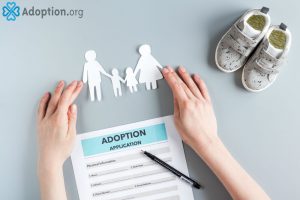For families interested in domestic adoption there are several avenues to consider—foster care, an agency assisted adoption or independent adoption. Private or independent adoption is essentially an adoption arranged without an agency. However, there are some aspects of the adoption process which are similar to those facilitated by agencies; there are notable distinctions between the two.
To begin, any family considering adoption must undergo pre-adoption certification classes and a home study with a state-licensed professional. It applies for foster care, an agency adoption, and independent adoption. Once the home study is complete, families pursuing an independent adoption will begin the process to find a birth mother, if they have not identified someone already. Prospective adoptive parents may work with a media specialist to advertise themselves and to help them network with prospective birth mothers. It is important to note, however, that advertising laws regarding adoption vary from state to state, so be sure to check that you are aware of the current state regulations.
In independent adoptions, when the prospective adoptive parents and the birth mother agree to the match, an adoption attorney will become involved in the process. It’s a good idea to identify an adoption attorney ahead of time so when families find the right match they will be ready to pursue the process. As an adoption agency, the right adoption attorney will be able to collect the medical and social history of the birth family and may arrange a counseling opportunity for the family as well. The adoption attorney will negotiate payments to the birth mother, handle all legal documents associated with the adoption, and represent the adoptive family in court to finalize the adoption. Adoption laws vary from state to state, if families live in one state but are adopting from another, make sure the adoption attorney is familiar with the Interstate Compact on the Placement of Children (ICPC). The ICPC has strict rules and requirements to adopt across state lines, and families who pursue an interstate adoption must comply with the state’s ICPC office before it approves the child’s transfer to the new state.
When the child is born, in a private adoption, the birth parents will relinquish their rights directly to the adoptive parents, while in agency assisted adoptions, birth parents relinquish their rights first to the agency, and then the agency gives the parental rights to the adoptive parents. Since each state governs the laws for domestic adoption, the time given for the birth parents to revoke the adoption varies.
The current range in cost for an independent adoption is $20,000-$40,000. Independent adoption is allowed in most of the United States excluding Colorado, Connecticut, Delaware, Massachusetts, and North Dakota.
Wondering if independent adoption is the right choice? Read more here.
Jennifer S. Jones is a writer, performer, storyteller and arts educator. She holds an MFA (Playwriting) from NYU Tisch. She has written numerous plays including the internationally renowned, award-winning Appearance of Life. Her amazing transracial transcultural family was created through adoption from China and India. She is passionate about the adoption community and talks about the ins and outs, ups and downs, joys and “is this really us?!” whenever she can. She writes about her experiences at www.letterstojack.com.
